Nothing Compares is a new film by director Kathryn Ferguson that revisits Sinéad O'Connor’s troubled upbringing and the controversial events that shot her to global fame
"She was like an alien landing from outer space, exciting and so bold. She was exactly what we needed at the time."
Filmmaker Kathryn Ferguson is talking about the first time she heard Sinéad O’Connor. It was 1987 and the gothic inferno of the singer’s debut album, The Lion and the Cobra, was the constant soundtrack on the tape deck as she and her father drove through the grey streets of Belfast at a time of bomb scares and sectarian strife.
The teenage Ferguson was smitten. "I could really see her, hear her and massively appreciated everything she was doing," the director says via Zoom from London
"My friends and I just loved her but then we were very demoralised to see how she was treated. We felt like we had just found her, and she was our idol at the time so it was just really demoralising in Ireland to witness that so I’d say the seeds of Nothing Compares were really sown then. I was a young woman watching this other young woman being treated so terribly."

It’s taken a long time for Ferguson to put that to rights with her engrossing new documentary and it is worth remembering just how terribly Sinead O’Connor was treated thirty years ago. The doe-eyed singer with the modulated south Dublin accent began her solo career as "Bambi in bovver boots" on her terrific breakthrough single, the brash guitar anthem Mandinka, and was feted as a superstar in the making.
Her immortal cover of Prince’s Nothing Compares 2 U became a monster hit and she was propelled to a level of fame comparable to Eilish or Winehouse - but Sinéad heard and refused to take part.
Still in her early twenties, she boldly challenged the gatekeepers of the music industry by boycotting the Grammys, and then, at the height of the Gulf War, she refused to let the American National Anthem be played before one of her gigs.
Frank Sinatra said he wanted to "kick her ass"; Sinéad’s father John quipped that "at his age, Frank wouldn’t be able to lift his leg". Pathetically, Joe Pepsi said he’d like to "give her a slap"
As Madonna hawked her tiresome Sex book, Sinead was reigniting the rebellious spirit of the sixties and the punk in an era of bloated corporate rock but when the girl from Glenageary took on the monolithic omertà of the Catholic Church, something far darker was stirring.
Exorcising her demons from her upbringing at the hands of an abusive mother, her time spent in a Magdalene laundry as a teenager and the church’s cover-ups of child abuse, on the night of 3 October 1992, Sinéad ripped up a picture of Pope John Paul II live on primetime US television and declared, "fight the real enemy!"
It’s a moment which still shocks and invigorates a full thirty years later. Naturally, she was branded a "she devil". Tabloid headlines screamed "Burn the witch" and "holy terror", she was assailed by death threats and radio boycotts, and then came the booing at the Bob Dylan 30th anniversary concert two weeks later.
After years of mental and physical abuse, Sinéad was like Joan of Arc burnt over and over at the metaphorical stake, this time on a global scale.
Ferguson was in her early teens at the time, but she remembers it all very vividly. "People steamrolling over her records in Times Square and people mocking her and these are quite lefty people, not even the right wing trying to suppress her," she says.
"It’s quite horrifying to watch what she went through, and you wonder today how many female artists if you were to do what we did and gather up all the commentary from the time . . . I don’t know.
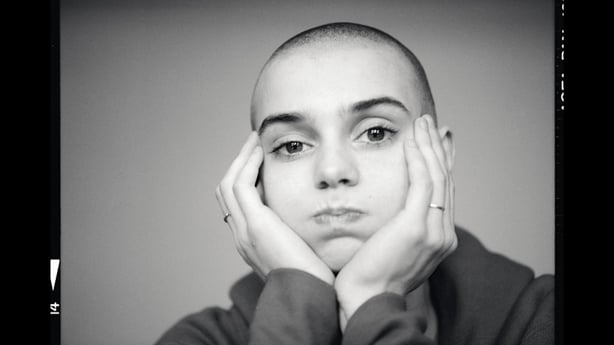
"I think Sinead definitely has been dealt a bad hand, so I wonder how deep the misogyny goes across the board. We just put it all together so you can see it."
Nothing Compares to you does a very good job of reclaiming Sinéad from the wreckage of those years and demolishes any notion that what the industry called "self-sabotage" was all a wily publicity stunt on her part. The film also pulls the whole saga into sharp focus to reveal just how radical and brave her words and deeds really were all those years ago.
This year’s Roe v Wade reversal and the MeToo movement make Nothing Compares a very timely look at a very important artist and younger viewers may be shocked by the level of abuse she suffered and just how misogynistic the music industry was and indeed still is.
"It’s been fascinating going to screenings of the film around the world," Ferguson says. "You get to that part in the film and the reaction from the audience and there are audible gasps, it is really shocking today to see the level of backlash and it is kind of absurd - this 24-year-old woman from Dublin had caused this much of a reaction, it’s just bizarre."
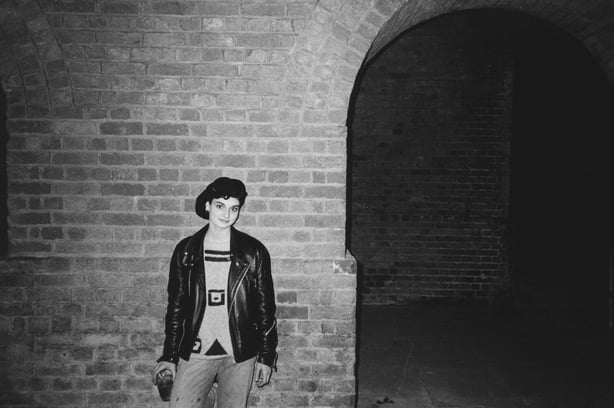
However, it could be easy to forget the fiery groundwork the singer laid back then. Ferguson’s film ends with footage of modern pop stars such as Billie Eilish and Ariana Grande on their own missions for change. Let’s face it, every pop star now has a campaign. Good for them.
Nothing Compares is very much a passion project for the Belfast-born Ferguson. She has won acclaim for films and shorts including Taking The Waters and she has worked with a range of artists such as Lady Gaga, Neneh Cherry and Villagers but her plans for a Sinéad doc were always buzzing around her head.
She was doing her Masters at the Royal College of Art in London and was working on a film called Máthair, which deconstructed a lot of the themes that were to become a central part of Nothing Compares, when she asked Sinéad’s management for access to her audio. They contacted her again and invited her to direct the video for the singer’s 2013 song 4th and Vine.
"I got to meet her then and it just stoked the fired further in trying to get this story together, but it did take years and years," Ferguson says. "I would talk to everyone and anyone about doing a film about Sinéad, but I didn’t know how to do it and then I met the film’s co-writers and producers, Eleanor Emptage and Michael Mallie, in 2018 and they had the same passion and desire to get it going."
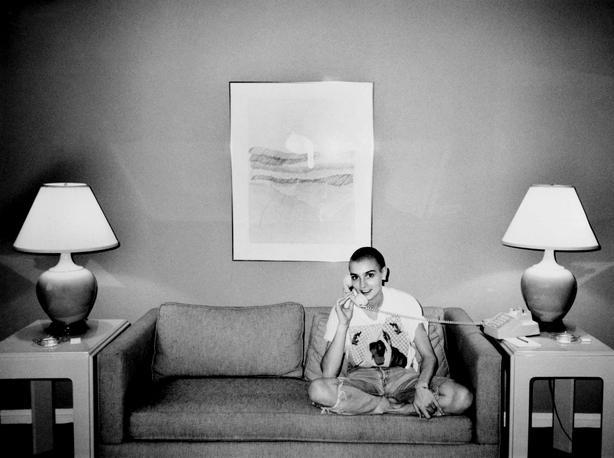
The estate of the late Prince - who is said to have had a tempestuous relationship with Sinead - refused the use of Sinead’s video for Nothing Compares 2 U in Ferguson’s film and it was quite a setback.
However, the film includes a new interview with Sinéad and makes inventive use of excellent archive of her pre-fame London years in the mid-80s, impressionistic imaginings of her troubled childhood and contributions from her ex-husband and producer John Reynolds, Fr. Brian Darcy, American artist Peaches, John Grant and Chuck D of Public Enemy.
"I wanted it to fundamentally immersive and in that era. I didn’t want to have contemporary footage that would you dragging you back and forth," says Ferguson. "The key thing is I wanted the viewer to hear what she was saying so I didn’t want any talking heads from any of our contributors. I wanted an immersive tapestry, so we shot with lots of different cameras and portraits to make it all weave together.
"Of course, we didn’t have any archive of Sinead until 1985 but we were able to investigate and lay the foundations of the Ireland that she came from which meant we had to try and create footage that would cover that section of the film.
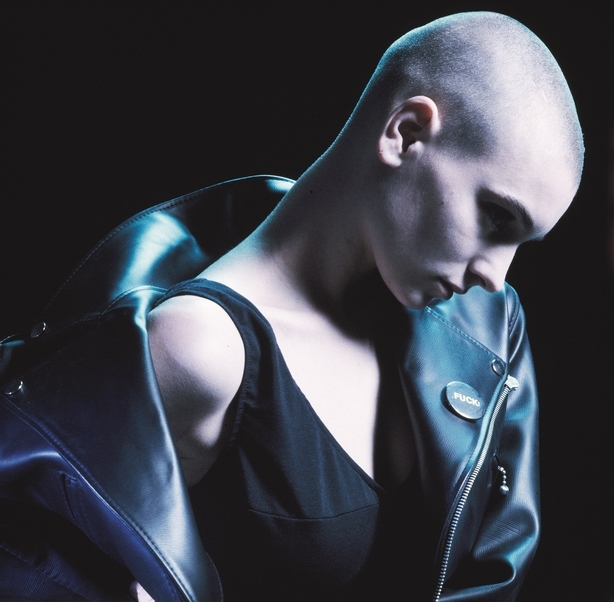
"John Maybury, her collaborator, amazing filmmaker, was such a key part of her life at that time and we wanted to deconstruct his videos and tell the biographical background."
The music is front and centre with the likes of Troy, a song on which Sinéad takes a blowtorch to her relationship with her mother, crystallised in the anguished line, "You should have left the light on".
Asked if Sinead is a totally reliable witness, Ferguson is friendly but brisk. "I think she is telling her story as she remembers it and I think that’s all anyone call do in their lives." she says.
Ferguson’s mission statement with Nothing Compares is clear. She wanted to present Sinéad’s years of refusal through the prism of feminism and "explore the broader history of Ireland and demonstrate the suppressive culture into which she was born".
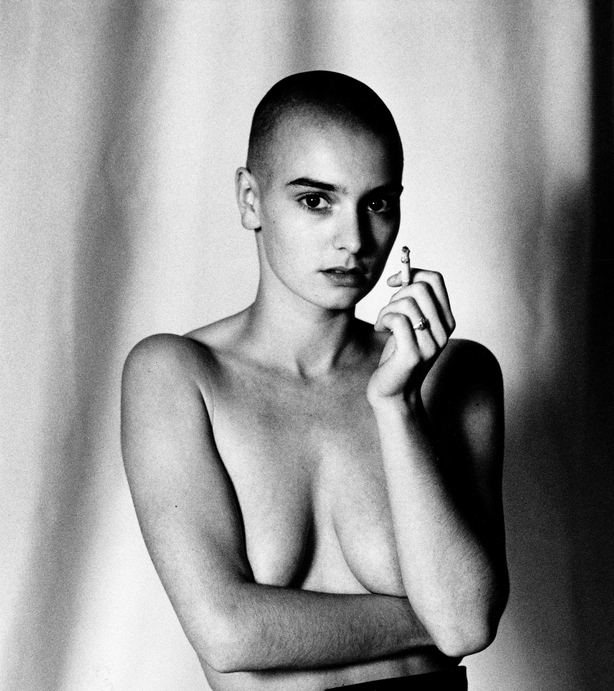
"I think she’s someone who has suffered so much vitriol and has been treated terribly so I really wanted to make a film that set out how she remembered it from a female point of view," the director says.
"I am really interested in female revisionist history because so many women who put their head above the parapet are torn down or reduced to footnotes in history and I really didn’t want that to be the case with her as somebody I admire so much."
As Sinead says in Nothing Compares, "I never wanted to be a singer. I just wanted to scream". The walls in Ireland came tumbling down in slow motion and while she may be given to contradictory statements as she journeys through new spiritual and artistic outlets, Sinéad has become somewhat of a secular mother superior and a voice for victims and survivors everywhere.
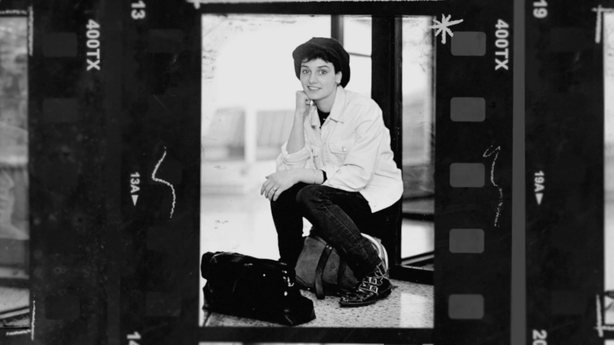
"I think where she is in the consciousness of Ireland is that she is viewed as this national treasure finally, which is brilliant," Ferguson says.
"It feels like it’s taken a very long time to get there but I think with all the activism in the past ten years with equal marriage and Repeal the 8th there was a lot of reclamation happening and I hope it continues."
Nothing Compares is in cinemas on 7 October


